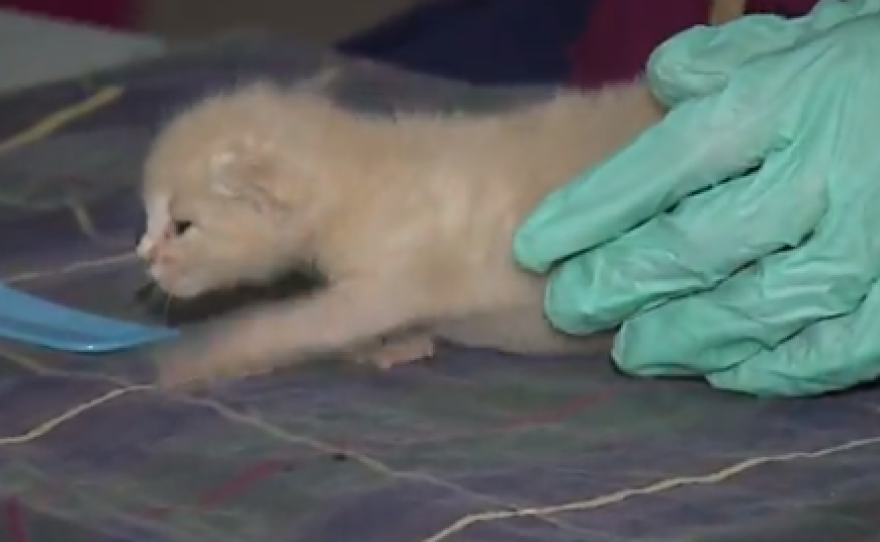The San Diego Humane Society has its work cut out. It wants to spay and neuter 5,000 dogs and cats by next summer, and help families who can't afford the cost of the surgery.
Just a few days old, one feline is being cared for at the San Diego Humane Society. In fact 90 percent of the kittens at this nursery are strays and this is where they get socialized, fed and used to people. Since 2009, they've taken in about 5,000 kittens from around the county.
"We kept it for the past couple of days, figured today would be a good day to bring him in to see if someone wants to adopt a pet," Dan Rivas said. He rescued a short-haired kitten during the recent rains, but couldn't keep it, because he already has a cat and dog at home.
"He's a stray so he'll end up going to the Department of Animal Services initially and then they'll place him up for adoption," Dr. Renee Harris told Rivas as he carted the cat away.
Harris has been with the San Diego Humane Society for 11 years. She says they don't put animals to sleep unless they have a terminal illness. One dog spent about a year at the shelter before being adopted, Harris said.
"We just got to find the right homes and we'll keep them until we do," she said.
From kittens to cats to pups and pooches, the Humane Society is one of San Diego's oldest nonprofit organizations. And its goal by this summer is to help people on limited incomes spay and neuter 5,000 pets to curb the overpopulation problem.
"About 80 percent of the stray population that we take from our contract cities are unaltered," Harris said.
She hopes eventually that deploying a mobile van for spay and neuter surgeries will help cut down on the problem. The van already had a few female kittens and puppies that were spayed earlier and ready to go home. Harris says overpopulation is a problem throughout the county, especially among pit bulls and feral cats. They also understand families are struggling to feed themselves, as well as their pets.
"Our project Kept is for low-income families. We assist with food and other items that they need, but we'll also assist with the spaying and neutering for those animals," Harris said. She says within five years they hope to do away with the need for a nursery because more animals will be properly cared for.







